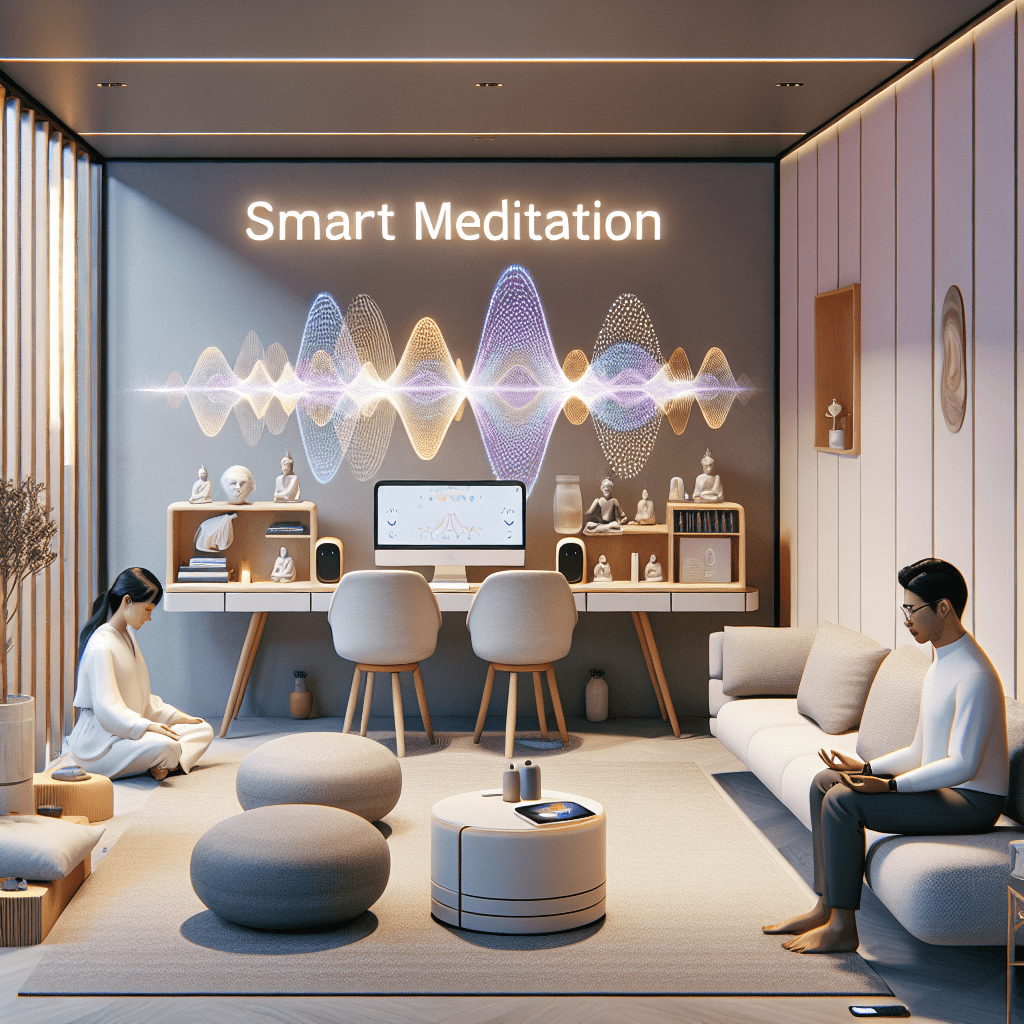
Prioritize your mental well-being daily. Enhance your life by nurturing your mental health with the Smart Meditation app. Break free from stress, alleviate anxiety, and enhance your sleep quality starting today.
How Does Meditation Help Anxiety Disorders?
Unlocking the Secrets: How Meditation Transforms Anxiety Disorders
In today’s fast-paced world, where the hustle and bustle can often lead to feelings of overwhelm, many are turning to ancient practices for relief from the modern-day epidemic of anxiety disorders. Among these practices, meditation has garnered attention, not just as a trend, but as a potent therapeutic tool. But how exactly does this age-old technique help in managing something as complex and multifaceted as anxiety disorders? Let’s dive in and unravel the mystery.
The Science Behind Meditation and Anxiety Relief
At its core, meditation is about mindfulness, a practice of focusing your attention on the present moment. But it’s not just a momentary escape; it’s a doorway to lasting change. Here’s why:
-
Brain Chemistry Bonanza: Meditation has been shown to tweak brain chemistry in a good way. Specifically, it increases levels of GABA (gamma-aminobutyric acid), a calming neurotransmitter, while reducing levels of cortisol, the notorious stress hormone. It’s like tuning the brain’s radio from a station blaring panic to one playing a soothing symphony.
-
The Neural Pathway Renovation: Regular meditation doesn’t just temporarily alter brain chemistry; it remodels the brain’s physical structure. Studies have illuminated that meditation increases gray matter density in areas linked to self-awareness, empathy, and stress regulation. Essentially, meditation renovates the brain, making it more resilient to stress.
-
The Stress Response Rewrite: Ever felt your heart racing or palms sweating at the mere anticipation of stress? That’s the body’s fight or flight response kicking in. Meditation trains the brain to press pause on this ancient alarm system, fostering a more measured response to stressors. Over time, this can lead to a significant reduction in anxiety symptoms.
Practical Steps for Harnessing Meditation in the Battle Against Anxiety
So, armed with the knowledge that meditation is more than just a placebo or a new age fad, how does one tap into its power to combat anxiety? Here are some actionable insights:
-
Start Small: The thought of sitting still for long periods can be daunting, especially when the mind is racing. Begin with short, 5-minute sessions and gradually increase the duration as your comfort level grows.
-
Consistency is Key: The magic of meditation lies in regular practice. Aim to make it a daily habit, whether first thing in the morning or as a wind-down ritual before bed.
-
Find Your Fit: Meditation comes in many flavors—mindfulness, transcendental, guided, just to name a few. Experiment to find which style resonates with you the most.
-
Embrace the Journey: Some days, meditation will feel like a breeze; on others, it might seem like a battle. That’s perfectly normal. The key is to approach each session without judgment and with a gentle persistence.
In essence, meditation offers a beacon of hope for those grappling with anxiety disorders. By altering brain chemistry, remodeling neural pathways, and teaching a new stress response, meditation paves the way for a calmer, more centered existence. So, why not give it a whirl? After all, the only thing you’ve got to lose is, well, anxiety.





